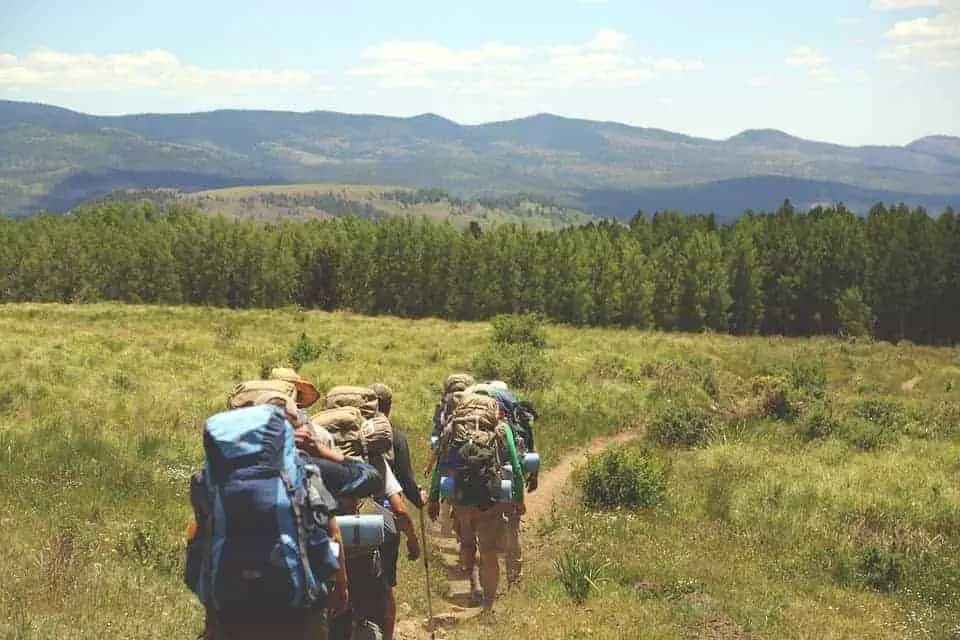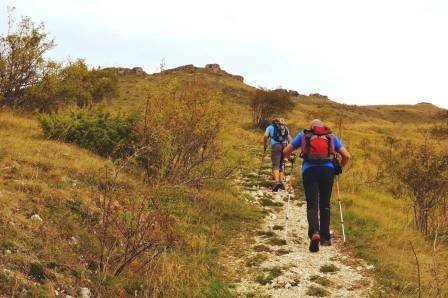If you’re an avid hiker, you already know there are countless benefits to hitting the trail as often as possible. You get to immerse yourself in nature, experience new things, go exploring, and get in a great workout along the way.
While some hikes can be more physically intense than others, you should still feel energized and accomplished by the time you’re done. If you’re feeling exhausted and tired instead, you’ll probably not enjoy hiking as much as you want.
It’s understandable to feel tired after a long hike. Depending on where you go and the amount of weight you’re carrying, it can be a strenuous workout. But, your exhaustion is likely a stamina or endurance issue.
Thankfully, there are things you can do to boost your hiking stamina every day. By making a few simple lifestyle changes and preparing properly for your next hike, you’ll feel more energized and be able to make it through the trail without exhausting yourself.
Let’s look at a few simple ways to boost your stamina so you can make the most out of each excursion.
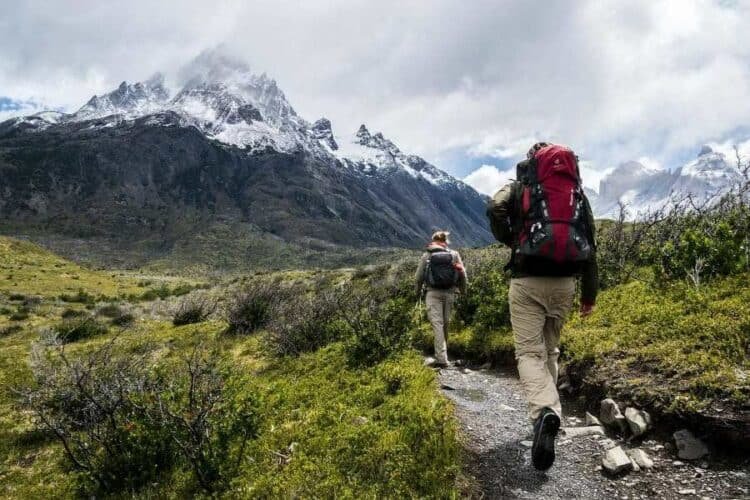
Image Source: Unsplash
Fuel Your Body the Right Way
Most hikers know the importance of having a few snacks with them on the trail. If you need a quick burst of energy, a handful of trail mix or a pre-packaged energy bar can give you the boost you need to keep going.
But, you should be making your nutrition a priority every day. One way to build more stamina for hiking is to increase your overall exercise frequency. Getting better at hiking requires you to build lower body strength and improve your cardiovascular health. To do that, you need to have the right kind of fuel in your body. Certain foods are better than others when it comes to boosting stamina because they release energy slowly and won’t cause you to feel a “crash”. Some of the best foods for stamina that should be in your daily diet include:
- Yogurt
- Bananas
- Eggs
- Peanut butter
- Oatmeal
By fueling your body the right way, you’ll be in better shape, overall. If you’re confused about putting together a nutrition plan or exercising to get in shape for hiking, consider working with an athletic trainer. They can evaluate your current health condition and put together an exercise and eating plan for you that will give you more energy to keep going on long hikes.
Get Enough Sleep

We can’t stress the importance of sleep enough. If you find yourself getting tired on the trails, you may not be giving your body the rest and recovery it needs. There are many physical health benefits to getting enough sleep, including:
- A boosted immune system
- Reduced risk of weight gain
- A stronger heart
- Improved exercise performance
Sleep can improve your mental health, too, by reducing the symptoms of anxiety and depression, allowing you to stay more focused, and sharpening your memory.
A lack of sleep, on the other hand, can be dangerous. Your reaction time will slow down, and you’ll be at a greater risk of developing health conditions like high blood pressure or diabetes.
If you struggle to get enough sleep each night, consider what could be causing it. Adopting healthier sleep hygiene habits will make a big difference in how restful your sleep can be. Some ideas to try include:
- Keeping your bedroom at an optimal temperature (60-67 degrees)
- Leaving your phone and other digital devices in another room
- Limiting noises and light
- Doing something calm before bed, like meditating or journaling
Try to develop a routine when it comes to your sleep schedule, too. This will help your natural circadian rhythms to be “reset” the right way. A routine will let your mind and body know it’s time to sleep, rather than doing anything else. Go to bed at the same time each night and wake up at the same time every morning. It can take some discipline and practice to fall into a schedule like that, but it’s well worth it for better sleep.
Focus On Your Breathing
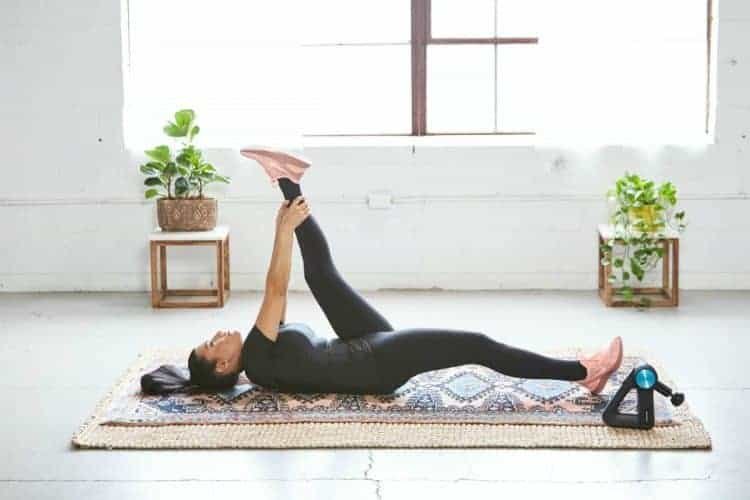
If you’re tiring out quickly on hikes and find yourself breathing heavily along the way, you might want to consider “working out” your lungs to build stamina. You can improve your breathing by working on different techniques.
Most people take very shallow breaths without even realizing it. When you’re doing something strenuous, which makes it harder for your body to get the oxygen it needs, you’ll get tired faster.
Taking deeper breaths will help more oxygen to get to your muscles while preventing fatigue. Plus, you’ll be able to enjoy other benefits like reduced stress and better blood pressure regulation.
To work on your deep breathing abilities, consider practicing meditation each day. Doing so will cause you to focus on deep breaths and how your body feels when you take them. There are still, unfortunately, some negative stigmas surrounding meditation. You don’t need to sit a certain way or do any “strange” chants for it to be effective. Instead, follow a simple process of sitting in a quiet room, closing your eyes, and focusing solely on taking a few deep breaths while you clear your mind. It’s a simple solution that can make a big difference in how you feel on the trail.
Don’t Push It
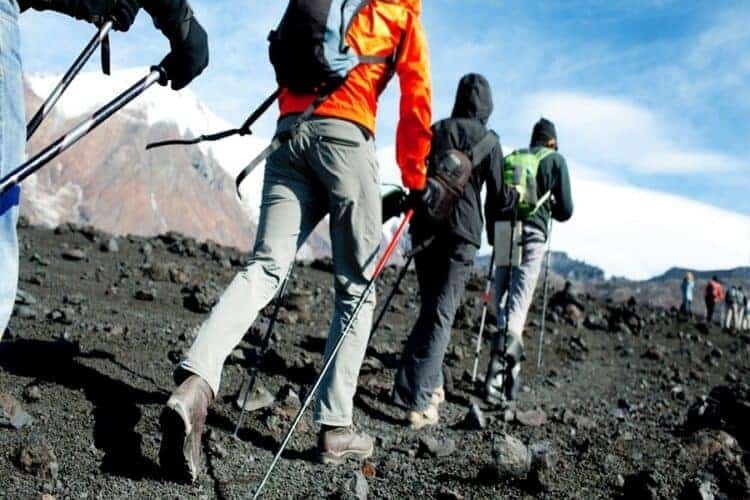
One of the biggest mistakes you can make as a hiker is not listening to your body. If you push yourself too far, you could easily end up with an injury or put your health at risk. You also won’t enjoy hiking as much and might even resent it if it’s causing you pain or discomfort. If you know something is wrong, you’ll probably end up getting help from someone, which is exactly what you should do to stay safe. But, if you’re seeking outside help from a doctor or sports therapist, make sure to be your own advocate by:
- Educating yourself on your health
- Communicating concerns with your provider
- Knowing your patient’s rights
- Having the confidence to make choices that are best for you
You know your body better than anyone, and if something a doctor or trainer says goes against what you’re feeling, it’s okay to stand up for yourself. If something is hurting or feels “off”, speak up. Even if nothing shows up on an X-ray or your doctor has an opinion, let them know when something isn’t right.
Stamina can be crushed instantly if you’re doing things physically that you shouldn’t. Make sure your health is your top priority, no matter what anyone else says. Does that mean you need to disagree with everything a medical professional say? Absolutely not. Remember, they are there to help. But, when it comes to your health and safety, you have to be willing to take a stand to protect your well-being.
Boosting your hiking stamina is about so much more than preparing just before you hit the trail. You’ll be a better hiker if you adopt a few of these changes into your life. So, whether you hike on occasion as a casual hobby or you can’t get enough of it, boosting your stamina is a great way to keep hiking fun, challenging, and exciting on every trail.
Disclaimer
Always, deduce some of the information from our outdoor, hiking, or camping experience and do not provide any warranty regarding its accuracy, completeness, reliability, and accuracy. Therefore, any action undertaken because of the information available on this website Hiking Gear Lab is entirely at your own risk. We will not be in any way accountable for damages or losses incurred through reliance on the information on our website/this article.
Always, consult your physician or a qualified medical professional for exact information before deciding on changing your lifestyle or diet depending on the information given in this article.
Author Bio:

Contributor: Luke Smith
Words about contributor of this Article: “Luke Smith is a writer and researcher turned blogger. Since finishing college he is trying his hand at being a freelance writer. He enjoys writing on a variety of topics but lifestyle and outdoor topics are his favorite. When he isn’t writing you can find him traveling, hiking, or gaming.”


